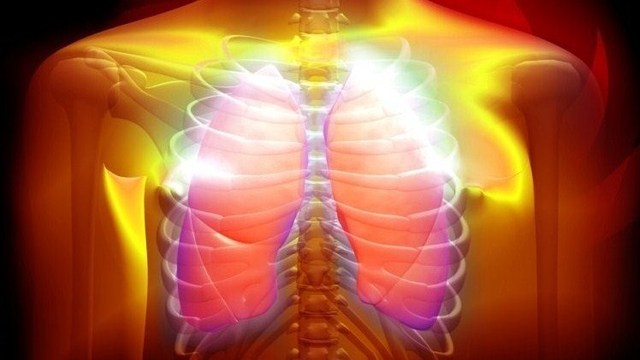Inhaled corticosteroids (ICS) are often used to relieve the symptoms of chronic obstructive pulmonary disease (COPD). Millions of COPD patients have used this type of medication for long-term treatment of the disease. But a recent study led by researchers at Johns Hopkins suggests that patients who use inhaled corticosteroids for a long time have a higher risk of bone fractures.
COPD is a broad term used for chronic breathing disorders including chronic bronchitis and emphysema.
• Emphysema is a condition in which the tiny air sacs inside the lungs are damaged or destroyed. When this happens, the lungs lose elasticity and cannot force stale air out to make room for fresh air. Patients with emphysema are not able to get the oxygen they need and often feel breathless.
Some patients with COPD have both chronic bronchitis and emphysema.
Inhaled corticosteroids are a standard part of treatment for patients with COPD. ICS medications are very strong anti-inflammatories which help reduce swelling in the airways and slow mucus production. They can also help reduce sensitivity to allergens that also trigger mucus production and swelling.
Inhaled corticosteroids have been considered safer than oral steroids because ICS work directly in the lungs without entering the bloodstream. However, researchers at John Hopkins noted a connection between patients who used ICS to treat COPD and an increased risk of bone fractures. The research team reviewed the results of multiple research studies that included over 86,000 patients. In all the studies, they found a significantly higher risk for fractures in patients who used ICS over those who did not. They also noted that as the inhaled corticosteroid dose increased, the risk of fractures also went up.
The drugs considered in the study were fluticasone which is used in Advair and budesonide which is used in Symbicort. The researchers noted that patients with COPD were already at higher risk for fractures than patients without the disease. They also noted special concerns because the majority of the patients in the studies were men age 60 and older. In general, women are known to be at higher risk than men for fractures as they go through menopause around age 50. The researchers expressed concern that if the risk in men was significantly higher, use of ICS could drastically increase the risk for women in this age group.
ICS medications are often used to help COPD patients avoid hospital stays. The research team concluded that over time and at high doses, inhaled corticosteroids may come close to the same risk level as oral steroids. They recommended that patients using ICS should be made aware of the possible risk of fractures so they can weigh the benefits and risks before starting or continuing to use the medication. They also urged patients using ICS to be more aware of the health of their bones and to consider using the lowest possible dose for the shortest time to reduce bone fracture risks.
Sources:
Science Daily
About.com: Asthma
About.com: COPD FAQ
Reviewed June 28, 2011
Edited by Alison Stanton






Add a CommentComments
There are no comments yet. Be the first one and get the conversation started!